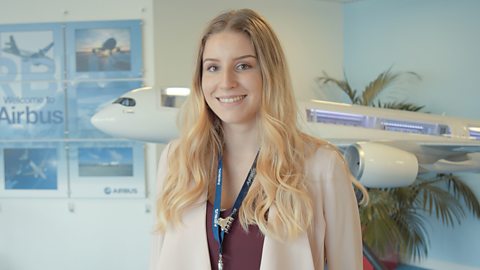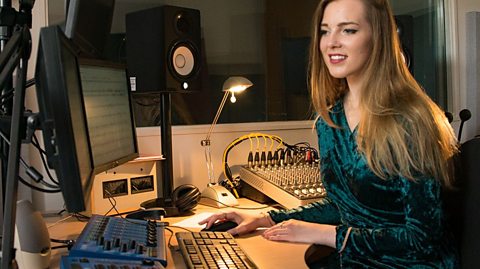Despite the challenges that come with being self-employed in the creative industry, I really love what I do.
Tommy:
I'm Tommy. I'm 24 years old. I'm a freelance audio engineer and musician.
I first became interested in music when I was maybe 12 years old. I did guitar lessons at school, but found them quite challenging. I did Music at GCSE, but didn't really want to do it at A-level. There I did Politics, History and English Literature. I got a place to do Politics at university. I deferred entry and ended up volunteering at a local community organisation, where I ended up teaching music to young people. From there I decided to change my place and study Music at university. My band formed at university whilst I was on the same course as the guitarist. I'm the lead singer and rhythm guitarist of an alternative rock band called New Luna from Manchester. I find music a really great way to express myself. And then when you're on stage, performing in front of an audience can be really nerve-racking, but when you have a moment where you get to really connect with an audience, there is really nothing like it.
After university, I did an internship at a music studio which led on to me being employed as an audio engineer at the same studio. Being a freelance audio engineer means that I gain different skills in regards to recording various projects and that kind of applies to my musicianship, because I'm able to produce my own band's work. This means we're able to do our own recordings. The process for recording a song is quite varied, depending on the artist. Recording a band often involves making sure the instruments are in tune and then setting up various microphones. We then go through to make sure all the signal levels are correct so that the microphones are hearing what's going on correctly and that this sounds good. We then go through various different takes until the band are happy. We then review these takes and sometimes edit them and then usually layer vocals on top.
After all the recording is done, there's usually a mixing or editing process where we use a digital audio software to kind of polish off the individual audio files and make the tracks sound great. The audio editing software that I've used so far in my career, I taught myself purely off of videos online. Being in a semi-professional band is hard and you have to be really, really organised. We have a shared calendar that we regularly update weekly with our shifts or anything that will affect when we can't rehearse. We try and rehearse twice a week, in order to stay up-to-date and to keep on top of our performances and prep for recordings, but even we find it hard. Despite the challenges that come with being self-employed in the creative industry, I really love what I do and the year coming up is exciting. I have a lot of interesting projects lined up at the studio and the band seems to be really moving in the right direction.
Tommy was interested in music from the age of 12, when he started guitar lessons, and he studied Music at GCSE
He initially intended to study Politics at university, but he deferred (delayed starting his course) and volunteered with a local community organisation where he taught music to young people, which led him back down a musical career path
He changed his degree course to Music and, whilst at university, formed an alt-rock band, New Luna
After completing an internship at a music studio after university, he started to work freelance as an audio engineer, recording music. He is now able to produce his own band's music. Whilst self-employment is challenging, it is also really exciting and he feels his band is heading in the right direction.

What to expect if you want to be an engineer
- How many people work in the engineering sector?
- What can you earn in different roles?
- What routes can you take to get in?
- Is the demand for engineers expected to grow in the future?
Watch the film to find out the answers to these questions, and much more!
Other resources
- See what type of engineering role might suit you with the meet the future you quiz
- Find out more about the different areas of engineering with this guide from Tomorrow's Engineers
- Learn more about roles in engineering with the National Careers Service explore careers tool
- Discover a practical new way to study via T-levels (England-only).
For careers advice in all parts of the UK visit: National Careers Service (England), nidirect (Northern Ireland), My World of Work (Scotland) and Careers Wales (Wales).

Work experience in your area
Find work experience placements with Workfinder.
Tips and advice
Help with interviews, writing a CV and all things work experience related.

How to become an engineer. collection
Find out more about the engineering sector and how those currently working in it got their foot in the door.

Grace: composer
Grace uses computers to help her write music.
